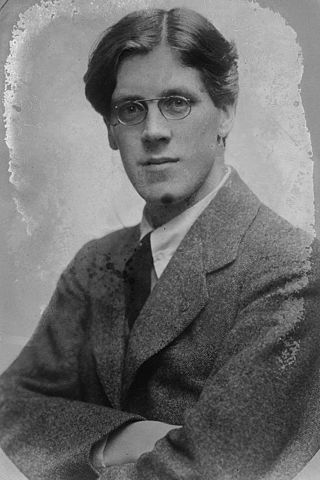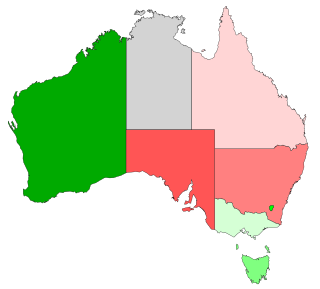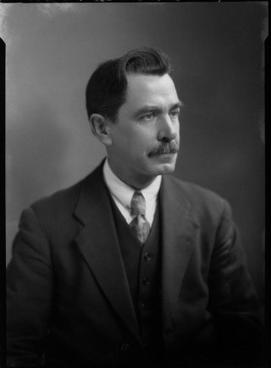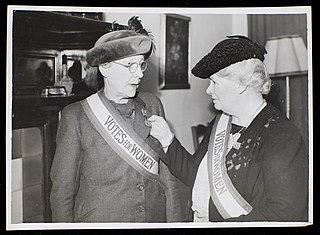Related Research Articles

Archibald Fenner Brockway, Baron Brockway was a British socialist politician, humanist campaigner and anti-war activist.

Conscription in Australia, also known as National Service following the Second World War, has a controversial history which dates back to the implementation of compulsory military training and service in the first years of Australia's nationhood. Military conscription for peacetime service was abolished in 1972.
Events from the year 1918 in Ireland.

Maurice McCrae Blackburn was an Australian politician and socialist lawyer, noted for his protection of the interests of workers and the establishment of the legal firm known as Maurice Blackburn Lawyers.
The National Labor Party was formed by Australian Prime Minister Billy Hughes in 1916, following the 1916 Labor split on the issue of World War I conscription in Australia. Hughes had taken over as leader of the Australian Labor Party and Prime Minister of Australia when anti-conscriptionist Andrew Fisher resigned in 1915. He formed the new party for himself and his followers after he was expelled from the ALP a month after the 1916 plebiscite on conscription in Australia. Hughes held a pro-conscription stance in relation to World War I.

The 1916 Australian referendum, concerning how conscripted soldiers could be deployed, was held on 28 October 1916. It was the first non-binding Australian referendum, and contained one proposition, which was Prime Minister Billy Hughes' proposal to allow conscripted troops to serve overseas during World War I.

William Arthur Holman was an Australian politician who served as Premier of New South Wales from 1913 to 1920. He came to office as the leader of the Labor Party, but was expelled from the party in the split of 1916. He subsequently became the inaugural leader of the NSW branch of the Nationalist Party.
Frank Leech was a prominent Anarchist in Glasgow, Scotland.

Reginald Clifford Allen, 1st Baron Allen of Hurtwood, known as Clifford Allen, was a British politician, leading member of the Independent Labour Party (ILP), and prominent pacifist.

Opposition to World War I was widespread during the conflict and included socialists, anarchists, syndicalists and Marxists as well as Christian pacifists, anti-colonial nationalists, feminists, intellectuals, and the working class.

Walter Henry Ayles was a British Labour Party politician who served as a Member of Parliament (MP) for 11 years between 1923 and 1953.

John Louis Engdahl was an American socialist journalist and newspaper editor. One of the leading journalists of the Socialist Party of America, Engdahl joined the Communist movement in 1921 and continued to employ his talents in that organization as the first editor of The Daily Worker. Engdahl was also a key leader of the International Red Aid (MOPR) organization based in Moscow, where he died in 1932.

John Ross Campbell was a British communist activist and newspaper editor. Campbell was a co-founder of the Communist Party of Great Britain and briefly served as its second leader from July 1928 to July 1929. He is best remembered as the principal in the Campbell Case. In 1924, Campbell was charged under the Incitement to Mutiny Act for an article published in the paper Workers' Weekly. Campbell called on British soldiers to "let it be known that, neither in the class war nor in a military war, will you turn your guns on your fellow workers, but instead will line up with your fellow workers in an attack upon the exploiters and capitalists." He was sentenced to six months in prison.

Tom Barker was a New Zealand tram conductor, trade unionist and socialist. He was born in Crosthwaite, Westmorland, England. He was a leading member of the Industrial Workers of the World (IWW) and politician in New Zealand and Australia.

The No-Conscription Fellowship was a British pacifist organisation which was founded in London by Fenner Brockway and Clifford Allen on 27 November 1914, following a suggestion by Lilla Brockway, after the First World War had failed to reach an early conclusion. Other prominent supporters included John Clifford, Bruce Glasier, Hope Squire, Bertrand Russell, Robert Smillie and Philip Snowden.

Helen Crawfurd was a Scottish suffragette, rent strike organiser, Communist activist and politician. Born in Glasgow, she was brought up there and in London.
Ernest Edwin Hunter (1883–1947) was a British political activist and journalist.
The Anarchist Federation of Britain was a British anarchist organisation that participated in the anti-war movement during World War II, organising a number of strike actions and providing support to conscientious objectors. Over time it gravitated towards anarcho-syndicalism, causing a split in the organisation, with the remnants reconstituting themselves as the Syndicalist Workers Federation.

James Scott Duckers also J. Scott Duckers, was an English lawyer, and prominent pacifist organiser and conscientious objector of World War I. He is now best known for his wartime memoir Handed Over.

Clara Gilbert Cole was an English suffragist, socialist, pacifist, anarchist, poet, and pamphleteer.
References
- 1 2 3 4 5 6 "WILLIAM J CHAMBERLAIN". www.menwhosaidno.org. Retrieved 2024-06-22.
- ↑ Keith Robbins (1976), The Abolition of War, The Faith Press, p. 210, ISBN 0 7083 0622 5
- ↑ Martin Pugh,Liberal Internationalism :the Interwar Movement for Peace in Britain. Basingstoke :Palgrave Macmillan, 2012. ISBN 0230537634 (p.94).